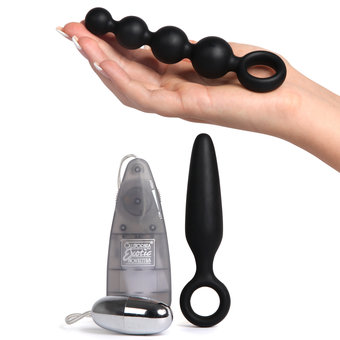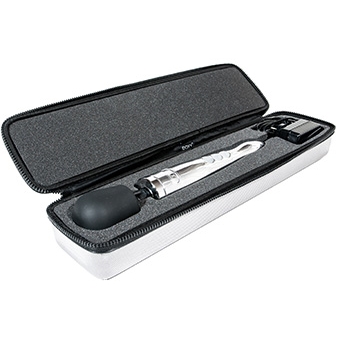15 Easy, Simple, Quick Tactics to Increase Playtime in Your Relationship
We would probably all differ a little in our answer to the question “What is a relationship for” but one thing we can probably all agree on is the idea that it needs to be fun. Fun is what happens between you and your partner when you put aside the problems in your life, in your world, maybe in your relationship itself, and “throw the old pigskin around” figuratively. Maybe you and your partner do this by tickling each other, wrestling, playful sex, joking around over text messages, drawing faces on fruit in the refrigerator for your partner to find, sending puns over facebook, etc.
Many magazine articles and therapy appointments focus on how to reduce stresses and conflicts without really ever focusing on the flipside. To use an analogy, reducing conflict is like saving money, while increasing play might be more like MAKING money – Earning it. Relationships where ongoing play increases fondness are stronger and create a better quality of life for the participants.
Co-director of the Marriage and Family Development Laboratory and Relationship Institute at the University of California-Los Angeles, Thomas Bradbury, says that having fun together can lead to more of the same and a deepening of their satisfaction with each other: “People in happy relationships generate these activities, and as they generate these activities, it keeps their relationship strong and healthy and fresh.”
Play can also shore up a relationship for harder times, help develop coping skills for new couples, and teach you something about a sometimes quiet partner. Not all of these ideas are suited to everyone, but one or two of them might help turn a relationship that is all about functionality into one that is emotionally satisfying.
1. Invent a weekly nickname
Use something that your partner likes about him or herself to create a silly nickname you only use in private communication with the partner. For example, if she bought a pair of pants with a fringe that she thinks look particularly good on her, you can call her “fuzzypants” for the next week.The message here is clear- “I am remembering this pleasant/attractive/interesting/exciting thing about you when I talk to you.” And that’s all. If he got rid of a spider for you in the bathroom, there is noreason why you can’t affectionately call him “spider-slayer” in private for the next week. Use these nicknames when you feel playful and just want to remind the other person that you are relating them with something good today- something they like about themselves.
2. Make a hatebox
Everyone is annoyed by things sometimes. And being able to vent about something can sometimes draw people together- but only when the other person feels involved and not part of the hatefest. You can do this by building a hatebox. Get a drawer or cigar box and both of you begin to place in it pictures of things you hate. Justin Beiber- people who park in front of firehydrants, the band Ratt, etc. Then, when you feel like having some fun, pull out something your partner placed in there and start venting about it with them. What you are essentially saying here is “I cared enough to open the box and find out how you feel about something and now I’m going to back you up.” Feel the hate.
3. Find something tiny that means “I’m thinking about you”
Your partner’s favorite candy bar, favorite pop, favorite color, any small thing that you can get allover. People fall into habits and playing along with those habits- when they aren’t dangerous or unhealthy- is just a comforting way to say “I like you how you are.” These are cheap, tiny things that can be picked up anytime, nearly anywhere, tailored to your partner’s interests. You may discover that your partner likes clowns, for example. This gives you the chance to bring homelittle pictures of clowns, cut out clown photos from the paper, red noses, etc,pinning them to the fridge or other public place they will see them. Or you may discover that your partner loves chocolate, something fairly easy to pick up anywhere.This is about ongoing, small actions.
4. Give each other “friend” names
Couples that answer “agree” to the statement “We regularly have great conversations where we talk just as friends” are more likely to stay together. It gets easier when you have a sign. Pick a name for your partner that makes you feel comfortable. For example, If Tom and Sally are doing this, Tom might pick “Eve” for Sally while Sally picks “Bruce” for Tom.This give them a chance to come home and talk to a friend if they want, someonewho is NOT responding as a partner, but just as a close confidant. Sally might walk in and ask to talk to Bruce. Tom can then listen and answer as Bruce- a friend. This is great if Sally wants to talk about ideas or problems that just don’t have anything to do with the relationship. Very often couples in a relationship are all too anxious to try to read between the lines and think that “I’m unhappy with my life” must mean “I’m unhappy with you.” Listening as a friend can wash some of that away and let people talk and sometimes just have fun.
5. Take turns having a secret identity
Protecting Superman’s secret identity probably brought Clark and Lois closer together. You can alternate having secret identities if you like, reminding the other one on those days that you won’t tell their superhero identity. It’s your phony secret and it can be fun. He: “We’re supposed to go swimming with the Parkinsons. Don’t wear your costume.” She: “But what if a crime occurs?” He; “I’ll cover for you. Shh, they’re coming.” The first person to mention it is the “coverer” and the other one is the superhero. By playing like this you can actually turn your partner into a “hero” for a bit. You probably DO think your partner is a bit of a hero. Why not show it?
6. Write bad poetry together
A piece of paper hung on the wall can be a way to connect easily. Every morning, before leaving, each of you can just write the next line in your poem. The poems never have to end but they can be funny, dirty, silly,or even beautiful. And one line at a time is not hard. It’s a light-touch shared activity that can pay off far more than it costs. Remember to not make it mandatory, though. Only write a line if you feel it.
 7. Step away from the TV
7. Step away from the TV
Intimacy and friendship for men tends to be based on shared activity. Just passive viewing won’t cut it. But more and more couples are spending their time in front of the TV. This is hollow time that doesn’t always help create intimacy and fondness. In a completely silly study Art Aaron and his team put couples through an obstacle course together while putting another group of couples through a mundane experience (radio listening, tv watching,etc.). The couples who went through the obstacle course reported feeling happier in their relationship afterwards than the control group. The most desirable kind of play activity is one that is a shared unique experience. This can range from stripping down at night and running through a sprinkler together to sneaking into a private area in the local ballpark. I hear you thinking that these are illegal activities but, honestly, they are fairly harmless. The benefits to your relationship may outweigh the risk. I’ve seen couples challenge each other to stand on one foot as long as possible. 5 minutes later, one person has fallen over, 5 minutes of tv was avoided and everyone is kind of a winner.
8. Corral your problems
Intimacy and friendship for women tends to be based on shared ideas through conversation. Just as men use experiences to build closeness,women use real conversation. But the conversation can quickly become painful if it’s full of problems and basic functionality. This can make people actually afraid to answer the phone or return a text message from a partner. Some couples can benefit from making time twice a week to discuss problems and letting that stand as the ONLY time. So, if Tom and Sally (or Tom and Nick, or Sally and Tina, or Tom, Nick, Sally and Justin Beiber) agree that Sunday from 4pm to 5pm and Wednesday from 7pm to 8pm is the time to talk about problems,they can KNOW that any other communication during the week is just one of them choosing to talk to the other one. For fun, for interest, for play, even to say “I love you.” This way, couples that are used to every new communication being a possible problem instead can begin to condition themselves to expect lighthearted conversation when their partner reaches out.
9. Learn to Improv
The rules of improvisational acting are simple. Affirm and Amplify.Whatever your partner says, affirm it and amplify it- plussing it up a step ortwo. Many friends do this automatically when talking, just assuming that the joke is good natured and part of how they communicate. He: “We should conjure up Satan tonight.” She: “I can pick up a chicken on the way home.” He: “Thanks,sweetheart. I’ll get the candles and a baby.” Being able to play off each other creates an interesting environment. You now know that your partner will confirmtheir silly version of reality and is willing to go on a little ride. If it sounds nonsensical to other people listening, all the better. If you end up with a couple of great phone exchanges to post on facebook and laugh about, so be it.
 10. Bring your partner to things that scare you
10. Bring your partner to things that scare you
In The same study where Art Aaron found that exciting activities can increase connection between couples, he found that exciting, scary, andarousing activities are, in a very real sense, arousing, which people often miscategorize as attraction to their partner, reigniting that initial spark. If you are going to speak in front of people, jump off something, or do something you’ve never done, invite your partner with you. That sense of fear and discovery may become ‘imprinted’ on your relationship providing a bit of “new relationship energy” to the mix.
11. Remember what fun looks like to your partner
For all sorts of reasons, many of which are biological and many of which are cultural, men can sometimes gain less satisfaction from handling conflict, while women struggle more trying to cope with emotional distance. So men may be more likely to withdraw from uncomfortable discussions while women maybe more likely to enjoy working through issues. Don’t expect that just because you are having fun your partner must be as well. Spending time together engaging in recreational activities may not always result in spouses developing positive feelings about the relationship if they are having different experiences and experiencing different levels of enjoyment.
12. Get lost together
Very often couples drag each other to something where one is the expert and one is a novice. This can often lead to different experiences as one person learns and the other teaches. It may also result in an activity where one partner is having fun while the other one- not so much. Researcher Duane Crawford noted that, “Although women may do activities with their husbands that their husbands like but they do not enjoy,the more time they spend in those activities, the more likely it is that they end up being less happy with their marriages.” Starting from the same place- a position of inexperience- can sometimes mean a real shared experience. Getting lost in a strange neighborhood and guessing at where to go is an interesting analogy, even though it might not be possible. But couples who learn to cook thai food, or learn guitar, or learn a language, or dive into anything at the same time, at the same level, can often feel the benefits of that shared experience.
13. Take the time to create “magic words”
All couples have to deal with public problems that come from the outside. Spend some time together inventing private solutions. For example: “when we’re at a party and you need to get away from someone, use the word ‘shining’ in a sentence and I’ll save you.
“If you don’t remember the person’s name you are talking to, use the word ‘brilliant’ and I’ll introduce myself and get the name.” “If you really want to go, bring up movie night and I’ll find away to get us out of there.” Having magic words that ward off boring people,things you don’t want to do, awkward situations, etc. and are shared just between the two of you can create an ‘us against the world.’ Feeling that is powerful and bonding.
 14. Plan a Robbery
14. Plan a Robbery
Nothing can make couples feel more like Bonnie and Clyde than to plan a robbery. When you and your partner are at a public function, take a minute to chart out how you would rob the place. In a store? Case the place together. Near a bank? I’m sure you guys can figure out how to get past security. The feeling of conspiring to do something taboo together is still powerful, even though you both know, in the back of your heads, that you will never do it. Part of your brain just knows that you just planned a robbery with someone- your “partner in crime.”
15. Share an imaginary friend
We all have the drive to be cruel sometimes. Studies have shown, though, that one incident of unkindness can sometimes obliterate many many acts of bonding and consideration. So maybe when you feel mean it’s a good idea to have a joint punching bag. So, for example, a family might have Marvin, the imaginary relative who is constantly abused. Marvin may have to eat in the basement andwear duct tape. And if anyone is having a moment of cruelty, Marvin makes a perfect foil. Sometimes you can just enjoy the idea that Marvin can take an insult, especially when you aren’t exactly in the mood to take one yourself.
I’m sure many of these just sound outright ridiculous. And they are. If a good relationship is anything at all, it’s ridiculous. But the will to sometimes do one or two ridiculous things in the name of love has to be,at the end of the day, at least a little heroic.
Doesn’t it?
 Jim Marcus is a musician and member of the Chicago Fetish community. The lead singer of the band Go Fight and, previously, of the defunct band Die Warzau, he has appeared on over 60 albums, singles and compilations worldwide, working with artists such as KMFDM, Pigface, Revenge and Björk. He speaks frequently on Consent and safe sex issues, put together sex education curriculum for schools and groups across the country and spoken on fetish and the goal of building better, more sustainable sex lives.
Jim Marcus is a musician and member of the Chicago Fetish community. The lead singer of the band Go Fight and, previously, of the defunct band Die Warzau, he has appeared on over 60 albums, singles and compilations worldwide, working with artists such as KMFDM, Pigface, Revenge and Björk. He speaks frequently on Consent and safe sex issues, put together sex education curriculum for schools and groups across the country and spoken on fetish and the goal of building better, more sustainable sex lives.
Aron, A., Norman, C., Aron, E., McKenna, C., & Heyman,R. (2000). Couples’ shared participation in novel and arousing activities and experienced relationship quality. Journal of Personality and Social Psychology,78 (2), 273-284
Slatcher, R. (2010). When Harry and Sally met Dick and Jane:Creating closeness between couples Personal Relationships, 17 (2), 279-297
Miller, S., Sherrard, P. A. D. (1999). Couple communication:A system for equipping partners to talk, listen, and resolve conflictseffectively. In R. Berger & M. T. Hannah (Eds.), Preventive approaches incouples therapy (pp.125-148). Lillington, NC: Edwards Brothers.
Stanley, S. M., Blumberg, S. L., Markman, H. J. (1999).Helping couples fight for their marriages: The PREP approach. In R. Berger& M. T. Hannah (Eds.), Preventive approaches in couples therapy (pp.279-303). Lillington, NC: Edwards Brothers.
Vincent, C. E. (1973). Sexual and marital health. New York:McGraw-Hill Book Company
Compatibility, Leisure, and Satisfaction in MaritalRelationships
Duane W. Crawford1, Renate M. Houts2, Ted L. Huston3, LauraJ. George4 Journal of Marriage and Family Volume 64, Issue 2, pages 433–449, May2002












































































I totally dig all your great ideas on getting closer to your partner I honestly use all except two and they really do work plus there just fun thanks for the great read.
Saw your Showtime show…..loved it……kudos to you!!!
Was fascinated by the Oming demonstration and would like to learn more about it/experience it, but can’t find any information about classes, places to go, etc. Would appreciate if you could provide me with some contact information and/or links……. (I live in Arizona, but can travel to California…..)
Thanks!!
[email protected]
PS: This kind of information provably would be helpful for all of your segments on the show!!
Thanks! I’ll include extra info in the follow-up videos I post the week following each show. The video for that episode will be up on my youtube channel by Tues or Weds. Their website is here: http://onetaste.us/ There are also One Taste Centers in quite a few major cities. Enjoy! XO!
The hatebox is particularly clever!